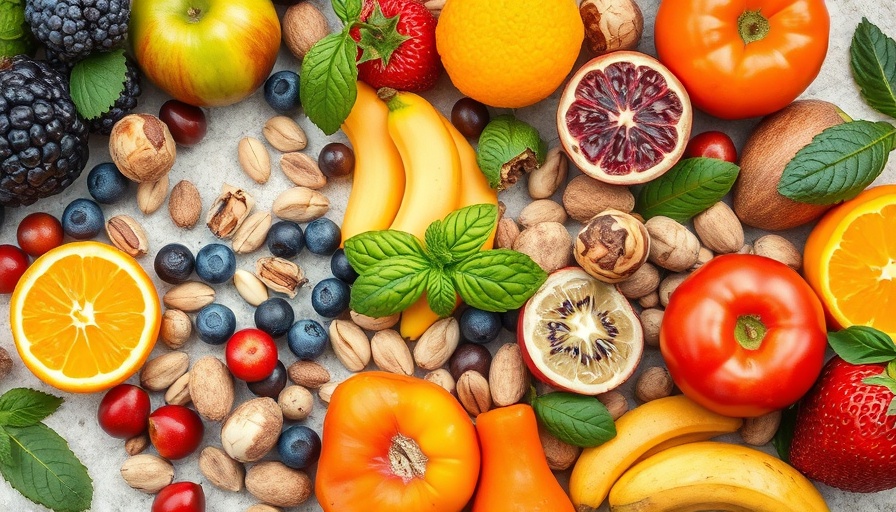
Discover the Nutritional Powerhouses for a Healthier You
In today’s world, where health trends can often feel like a dizzying carousel of choices, identifying foods that genuinely bolster your well-being can be a daunting task. Enter the concept of nutrient density—a vital factor crucial for those seeking to maximize health benefits from their diet.
Nutrient Density Demystified
Nutrient density revolves around the concentration of essential nutrients like vitamins, minerals, and antioxidants in food relative to its caloric content. Foods that are high in these beneficial components, yet low in calories and unhealthy additives, are the cornerstones of a nourishing diet. Understanding this notion empowers individuals to make informed dietary choices, ensuring they derive ample nutrition from every calorie.
Top Nutrient-Dense Foods to Incorporate
So what are these superhero foods? Here’s a closer look at some of the most nutrient-dense options to consider:
Leafy Greens: Powerhouses of vitamins A, C, K, and essential minerals; they bolster immunity and enhance digestion.
Fatty Fish (Salmon, Mackerel): Rich in Omega-3 fatty acids that are excellent for heart health and brain function.
Avocados: Packed with healthy fats, fiber, and vital nutrients that support cardiovascular health.
Chia Seeds and Flaxseeds: These tiny seeds provide a wealth of fiber and Omega-3 fatty acids crucial for digestive and heart health.
Berries (Blueberries, Strawberries): Low in calories yet high in antioxidants, these fruits protect against inflammation and chronic disease.
Eggs: Nutrient-dense and versatile, eggs offer an excellent source of protein, vitamins, and minerals.
Sweet Potatoes: A great source of vitamins A, C, and fiber, and a healthier alternative to regular potatoes.
Quinoa: This ancient grain is a complete protein and provides essential amino acids, making it an ideal food for muscle maintenance.
Nuts (Almonds, Walnuts): A fantastic source of protein, healthy fats, and numerous vitamins and minerals.
Legumes (Beans, Lentils): High in protein, fiber, and various nutrients, legumes have been linked to better heart health.
The Health Benefits of Embracing Nutrient-Dense Foods
Choosing nutrient-dense foods isn’t merely a dietary trend; it’s a lifestyle choice with profound health implications.
Boosting Immunity
Nutrient-dense foods are often rich in antioxidants and vitamins known to combat free radicals. This immunity boost helps your body fend off infections, promoting resilience in the face of seasonal ailments.
Supporting Digestive Health
Foods high in fiber, like legumes and leafy greens, help regulate your digestive system effectively. They ensure regular bowel movements and contribute to a balanced gut microbiome.
Enhancing Cognitive Function
Incorporating nutrient-dense foods into your meals supports cognitive abilities. Omega-3-rich foods like salmon have been repeatedly linked to improved brain health, potentially reducing the risk of dementia.
Disease Prevention
A focus on nutrient-dense options generally reduces the intake of unhealthy fats and sugars, which helps mitigate risks associated with chronic diseases like heart disease and type 2 diabetes.
Creating Balanced Meals
An effective way to ensure you maintain a nutrient-rich diet is to create balanced meals that incorporate a variety of these foods. For example, consider a bowl comprising quinoa, roasted sweet potatoes, leafy greens, and seasoned salmon topped with a light avocado dressing. This dish not only delivers excellent flavor but is also a treasure trove of nutrients.
Final Thoughts: Your Path to Optimal Health
Understanding the importance of nutrient density can significantly transform your approach to nutrition. By purposefully including these nutrient-dense options in your pantry, you are not only choosing taste but are also investing in decades of potential health benefits. Start today, embrace these powerhouses of nutrition, and pave your way to a healthier, thriving life.
 Add Row
Add Row  Add
Add 




Write A Comment